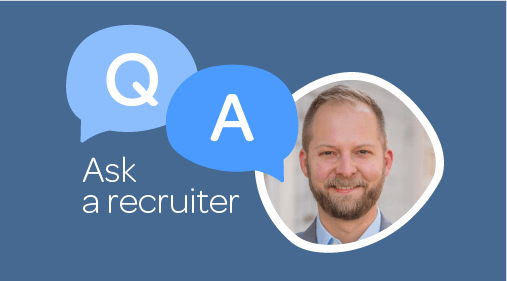Ask a Recruiter: How do you include video interviews in the hiring process?


As an organization hiring up to 50 new employees per year, we needed to find ways to be more efficient with our time. To make things easier, we decided to try Jobma, one of the video interviewing platforms already integrated with Workable, our recruiting software. While this added another step to our hiring process, it actually helps us to hire faster by ensuring that we’re bringing in the right people for an interview.
How do video interviews work? It’s easy. Once we’ve reviewed the applications, we send three questions via email to the most promising candidates. These questions are relevant to both the role and the company and help us screen applicants. Candidates can record and submit their answers via the video platform. Those who qualify will move forward to a phone screen. Those who don’t, will be notified by our team.
Using video interviews when it makes sense
One-way video interviews are helpful during the early hiring stages. Often, candidates seem good on paper, but lack the necessary skills for the job. Video interviews give us a better understanding of candidates’ potential, particularly when it comes to skills we can’t judge based on a resume alone, like communication or presentation skills.
Also, for entry-level roles, we often hire recent graduates with little or no job experience. Video interviews help us to learn more about their abilities and career interests.
What questions to ask during video interviews
The information included on resumes and application forms is usually quite general. Video interviews help us delve into candidates’ skills to understand if they’re a good fit. Since we’re hiring for customer-centric roles, we get to see how candidates carry themselves. If they’re good communicators, we want to meet them in-person, too.
One-way video interviews also help us to spot dealbreakers early in the recruitment process. For example, we ask candidates about their career goals. This helps us to identify potential hires who’ll find the position interesting and have the skills to contribute to our business objectives. We ask targeted questions like:
- Why did you apply for this role?
- Which of your skills do you think will help you thrive in this position?
- What are your short-term and long-term professional goals?
How video interviews speed up the hiring process
Adding one-way video interviews in the beginning of our hiring process helps us make better use of our time and hire faster because we:
- Reduce the number of phone screens: Video interviews are good indicators of who’s qualified for the next hiring steps and who’s not.
- Save time during phone screens: Having already covered some points at the video interview stage, we can now ask fewer questions during the phone call.
- Get ideas for useful, follow-up questions: During video interviews, we learn things about each candidate that we didn’t know based on their resume. These can be useful talking points for the interviews that follow.
But, what do candidates think about video interviews?
So far, candidates have given us positive feedback. They think that video interviews add a unique, more modern touch to the hiring process. The secret is to keep the process as human as possible.
We start by proactively emailing instructions on the way candidates can record their answers and share tips on how to improve their performance. We also include answers to common questions a candidate might have and make sure we’re available to answer any questions with a personal reply.
The goal is to have candidates who are well-prepared and feel relaxed, so that they can bring out their best selves when recording their answers. That’s how you’ll shape more complete candidate profiles and decide who you’ll invite to a live interview.
Neil Bruinsma is the Talent Manager at Xcentric, an IT cloud service provider, where he develops and scales their talent management strategy. He has also built talent systems from the ground up for both nonprofit and for-profit companies that have increased employee engagement and reduced company turnover. Neil is an SHRM-certified professional and holds a degree in Mechanical Engineering from Calvin College, USA.




